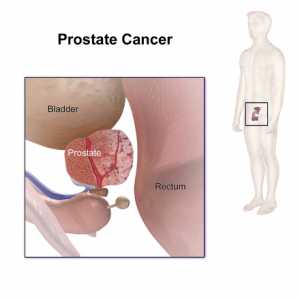MedicalResearch.com Interview with:
Amar U. Kishan, MD
Assistant Professor
Department of Radiation Oncology
University of California, Los Angeles
MedicalResearch.com: What is the background for this study? What are the main findings?
Response: Three large randomized trials demonstrated an overall survival (OS) benefit when androgen deprivation therapy (ADT) is combined with radiotherapy (RT) for high-risk prostate cancer (PCa). The duration of ADT in these seminal studies ranged from six months to lifelong. Because ADT has multiple attendant adverse effects--including bone loss, altered metabolism, diminished muscle mass, gynecomastia, hot flashes, and possibly increased cardiovascular events--shortening the duration of ADT without compromising oncologic effectiveness has been an area of active study. Five trials have compared various durations of ADT, reaching conflicting conclusions with respect to overall survival outcomes, with some suggesting an improvement with longer durations of ADT and others failing to show a uniform survival benefit.
Most of these trials have amalgamated Gleason grade group 4 (Gleason score 8) PCa with Gleason grade group (GG) 5 (Gleason score 9-10) PCa. Emerging data indicate that GS 9-10 PCa constitutes a distinct subset of high-risk PCa with inferior outcomes and earlier progression than GS 8 disease. With the knowledge that GS 9-10 PCas constitute a distinct, more aggressive form of PCa, one might hypothesize that longer durations of ADT may be more advantageous in both augmenting local control and controlling potential micrometastatic disease. Alternatively, as GS 9-10 lesions by definition contain highly de-differentiated Gleason pattern 5 disease foci and may proceed to a castrate-resistant state more rapidly, one may also hypothesize that GS 9-10 lesions are less responsive to ADT, and longer durations may be counter-productive.
In order to identify differences in the impact of ADT duration on clinical outcomes of patients with GG 4 and GG 5 PCa, we performed an individual patient-level meta-analysis of six randomized trials. Our working hypothesis was that longer durations of ADT would offer significant survival benefits in both groups.
(more…)





